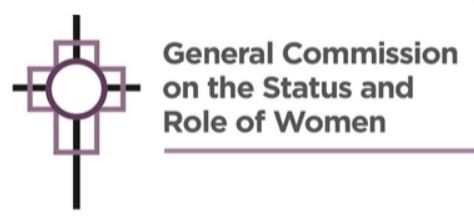The General Commission on the Status and Role of Women seeks to offer ministry resources that help promote the use of the most expansive language possible. We encourage the use of this expansive language when we are meeting in groups—from small to medium to large. The United Methodist Book of Resolutions (811) affirms “the use of biblical language and images in worship and in our common life together, and affirm the use of language that reflects the longstanding commitment to the inclusiveness and diversity of United Methodist members and constituencies.” We build upon this work in The United Methodist Book of Resolutions by encouraging the use of expansive language in all of our common work together. Please use this video to introduce using expansive language in your churches, small groups, youth groups, United Methodist events, etc.
Recognizing that every person, woman or man, is a full and equal part of God’s human family, The United Methodist Church is committed to the full and equal responsibility and participation of women in the total life and mission of the church, sharing fully in the policy making at all levels of the church.
The General Conference of The United Methodist Church established the Commission on the Status and Role of Women (COSROW) in 1976 as an action-oriented commission to address discrimination against women at all levels of the denomination. To find out more about the General Commission, visit their website at: http://www.gcsrw.org
In the Virginia Annual Conference, three key words symbolize the major areas of work for COSROW:
advocate / catalyst / monitor
As advocates, we speak on behalf of women, individually and collectively, within The United Methodist Church, to ensure that the church has the benefit of the wisdom, life experiences, and perspectives of women.
As catalysts, we seek creative methods to redress inequities of the past and to prevent future inequities against women within The United Methodist Church. To be a catalyst is to endeavor to bring about new perceptions, new roles, and new empowerment for women in the church.
As monitors, we endeavor to ensure inclusiveness in the programmatic and administrative functioning of The United Methodist Church.
In our work we strive to be advocates, catalysts, and monitors for women and the issues concerning women in the church. We covet your prayers and assistance as together we continue this necessary work in our annual conference.
Monitoring Results of
Annual Conference 2023
GENDER
- 51 percent female
- 49 percent male
AGE
- 5 percent youth (under 18)
- 11 percent young adult (18-35)
- 67 percent adult (36-65)
- 17 percent older adult (66+)
ETHNICITY
- 7 percent Asian
- 12 percent Black
- 3 percent Hispanic
- 0 percent Native American
- 78 percent White
- 1 Pacific Islander
Virginia Conference Representatives
Rev. Lauren Wright, co-chair
Rev. Jenny Day, co-chair
Members:
Sarah Calvert
Denise Childers
Sharon Harold
Suzanne Joyner
Susan Lewandowski
Linda Ray
Julianne Rosas
Audrey Smith
Deborah Washer
Jenelle Watson
Carolyn Woodrum
Mandy Newman
Madeline Pillow White,
Connectional Ministries Staff
Resources
Women Called to Ministry is a six-week study session about women in The United Methodist Church. It is designed primarily for use by local congregations and may be downloaded or copied. Study Guides are available in English and Spanish. You can download and print copies from the website for the GCOSROW at:
https://www.gcsrw.org/Resources/Curriculum.aspx
The United Methodist Church, through the General Commission on the Status and Role of Women, has a Web site with resources and information about sexual ethics. This Web site addresses the issues of sexual misconduct, abuse, and harassment by those entrusted with ministerial roles in the United Methodist Church. Click here to link: http://umsexualethics.org/.
For more information, contact the conference Communications office at: PO Box 5606, Glen Allen, VA 23058-5606; phone (804) 521-1113.



